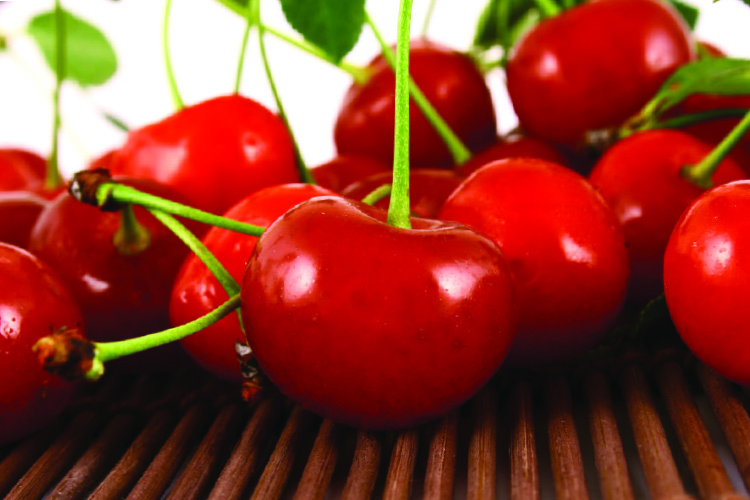The cherry is one of the world’s oldest cultivated fruits, along with its cousin, the apricot. Cultivation dates back to 300 B.C. and its lineage dates back even farther. The common cherry tree, Prunus avium, is native to the temperate areas of eastern Europe and western Asia and is part of the Rose family. Its name comes originally from the Greek, and in Latin means of or for the birds, due to the birds’ obvious love of the fruit. The English word cherry originates from the Assyrian karsu and Greek kerasos. The tree was beloved by the Egyptians, Greeks and Romans both for its beautiful flowers and its versatile fruit.
- The anthocyanin and bioflanoids in cherries, by helping to reduce inflammation in the body, also help eliminate migraine headaches. These compounds are known to have similar activity to aspirin and ibuprofen
- Cherries also contain ellagic acid, a naturally occurring plant phenolic known as an anti-carcinogenic/anti-mutagenic compound. Some researchers say that ellagic acid may be the most effective way to prevent cancer
- The antioxidant melatonin, which is also rich in cherries, is significant in improving the body’s circadian rhythms
- Since the body so rapidly absorbs melatonin, cherries can increase melatonin levels in the blood, therefore improving the way you sleep
- Cherries are rich in two important flavonoids, isoqueritrin and queritrin, which act as antioxidants and work to eliminate byproducts of oxidative stress, therefore slowing down the ageing process
- Perillyl alcohol (POH) – another compound found in cherries – is extremely powerful in reducing the occurrence of all types of cancer. Researchers found that POH stops the growth of cancer cells by depriving them of the proteins they need to grow
- Cherries (both sweet and tart) contain two powerful compounds, anthocyanins and bioflavonoids. Both these compounds slow down the enzymes Cyclo-oxyygenase-1 and 2, which helps to relieve and prevent arthritis and gout in the body
- Cherries were shown to reduce oxidative stress, which is a cause of autoimmune disease
- Cherries, along with many other berries, are a rich source of antioxidants. They help prevent or repair the damage done to the body’s cells by free radicals
- Queritrin – a flavonoid – is rich in cherries, and has been found to be one of the most potent anticancer agents. When eating cherries, the queritrin is set free to fight off all the body’s cancerous cells
















